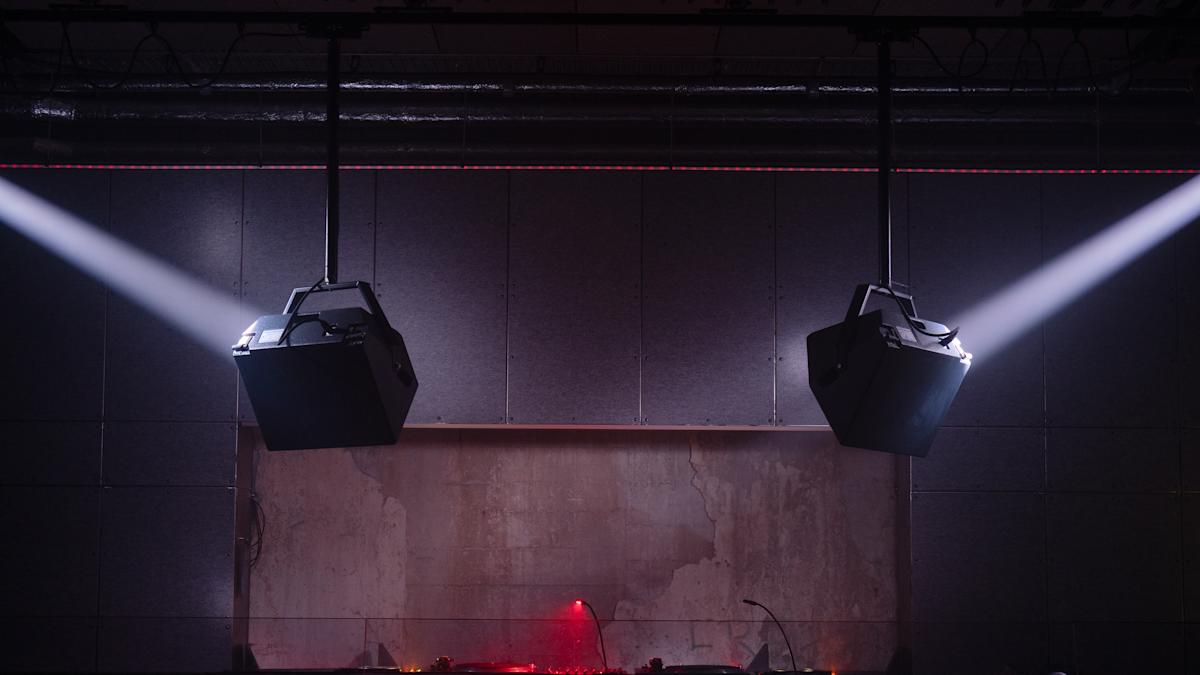
Heavy Feelings and Refuge Worldwide break common ground
We head to Wuppertal in February for a night at Open Ground.
Loading
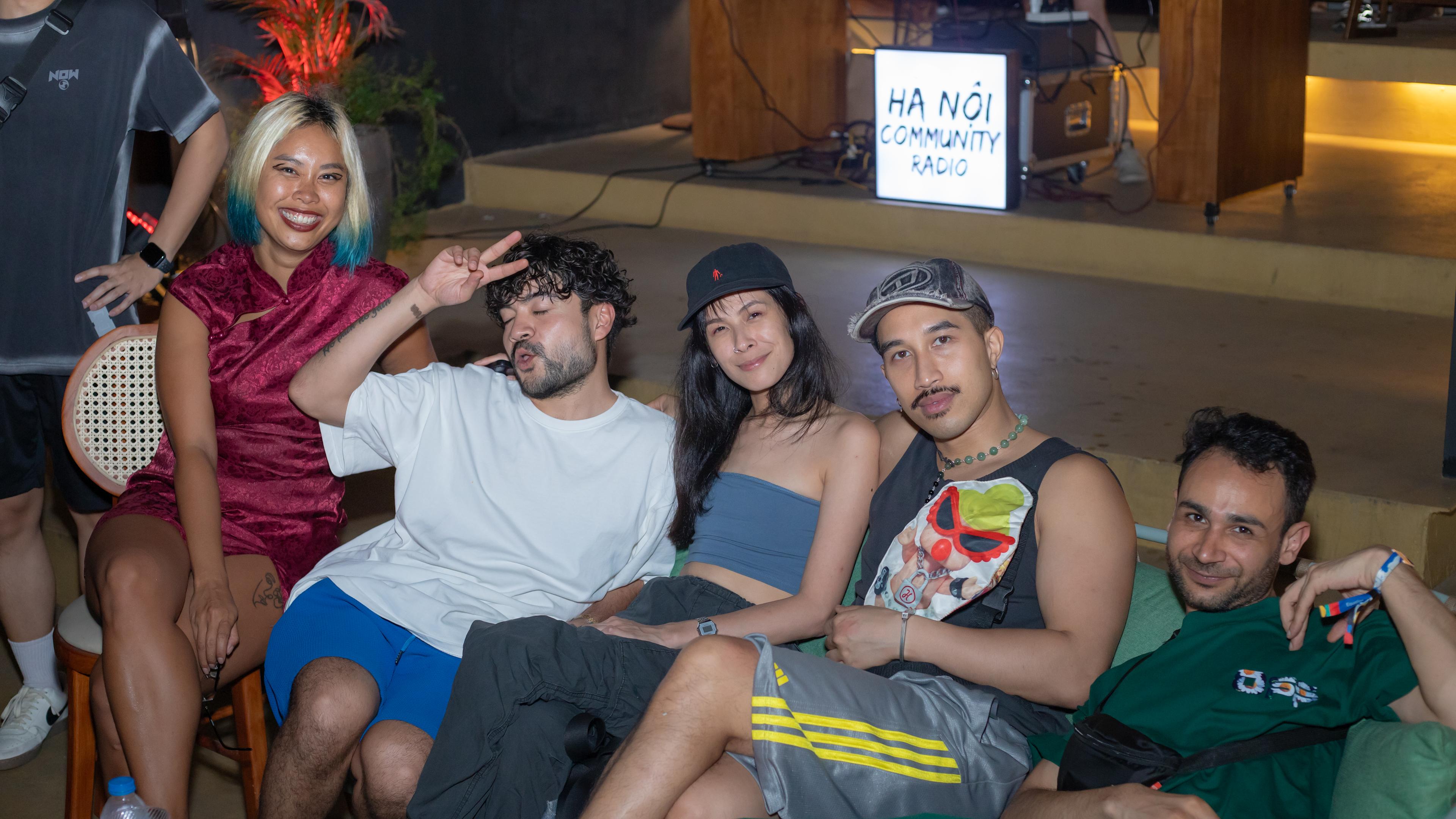
Maggie Tra from HCR on the importance of community radio in Vietnam.
By Ilo Toerkell
Airtime is our feature series focusing on community radio projects from across the globe. This edition spotlights the work of Há Nội Community Radio (HCR), broadcasting from Vietnam.
Há Nội Community Radio was founded in 2020 by Maggie Tra and hosts shows by local artists as well as people living in the diaspora uplifting Vietnamese music, art and culture. The aim of HCR is to give the younger generation of Vietnamese people access to self-expression through radio and music.
With Maggie Tra, we spoke about the shifting perception of radio and how community radio stations like Há Nội Community Radio contribute to that. Tra also shares her thoughts on HCR's connection to the Vietnamese queer community and why there are limitations to broadcasting from a communist country like Vietnam.
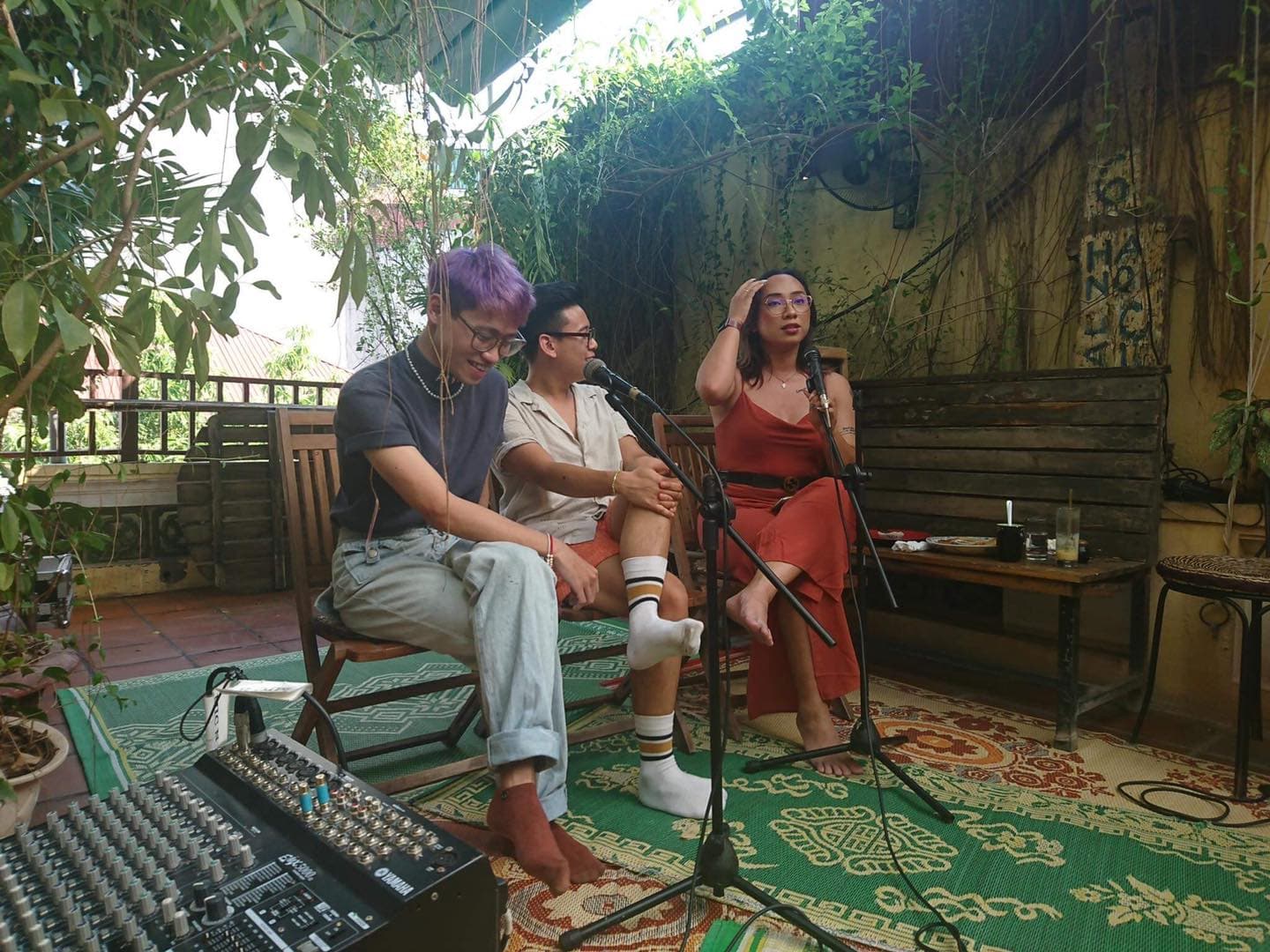
Hi Maggie Tra! Can you tell me about the beginnings of Há Nội Community Radio?
I have always dreamt of starting a radio station. I grew up in Australia, but my father was born in Vietnam, and my mum was born in Cambodia. When I went to live in Hanoi, I was accepted by the Vietnamese community and my ancestry. It was such an amazing experience for me. Growing up in Australia, I noticed how I had access to things many people in Vietnam don't and I became aware of that privilege. Há Nội Community Radio is a way for me to use my skill set to give something back. So in 2020, we started figuring out what is needed to build a community radio. Eventually, things took off, more people joined in, and we even got funding.
As opposed to Refuge Worldwide, HCR does not have a physical home base and is broadcasted online with the occasional live stream taking place in Hanoi. Was that something you consciously decided on or where there just no options?
At first, we were unsure whether we should get a studio or keep it online. I was warned that, because Vietnam is a communist country, it might not be a good idea to have a physical space. It was not like we were planning to have political shows. Rather, the idea of Há Nội Community Radio was to help the younger Vietnamese generation get into radio as a means of self-expression.
In a country like Vietnam, it is often not safe to express yourself freely or speak your mind because of constant surveillance. So, the digital realm seemed like the better place to nurture artistic expression. Being an online medium also allowed us to reach people beyond Hanoi in the Vietnamese diaspora. Because of that, we don’t have a physical location. But, we do monthly live streams from local bars or cafes in Hanoi. Like that, we reach a different audience than online. Many local Vietnamese people riding their bikes or walking by, stop to listen.
Who else is behind the structures of HCR and how do you curate your shows?
When we got the grant, I was able to hire a few team members for a year or two. Now, we are fully run by volunteers, which sometimes makes it difficult to stay consistent as we all have our full-time jobs. Engaging in volunteer-run cultural projects is a huge privilege that not many people have. In Vietnam, many are just focused on getting work to make a living. A lot of people from the Vietnamese diaspora also want to contribute to the station. I can relate to that a lot. The love and connection to our roots are some of the reasons why HCR exists.
With our shows, we focus either on Hanoi or Vietnam as a whole. So, all the concepts for resident shows should somehow relate to that, whether it’s because they play Vietnamese music, or talk about what’s going on in the area.
What makes a station like HCR important?
I love seeing how community radio brings people together and how it builds confidence. Growing up in an Asian household, I have experienced how you are taught to suppress and not talk about feelings. A community project like HCR can give people space to break that pattern and build confidence.
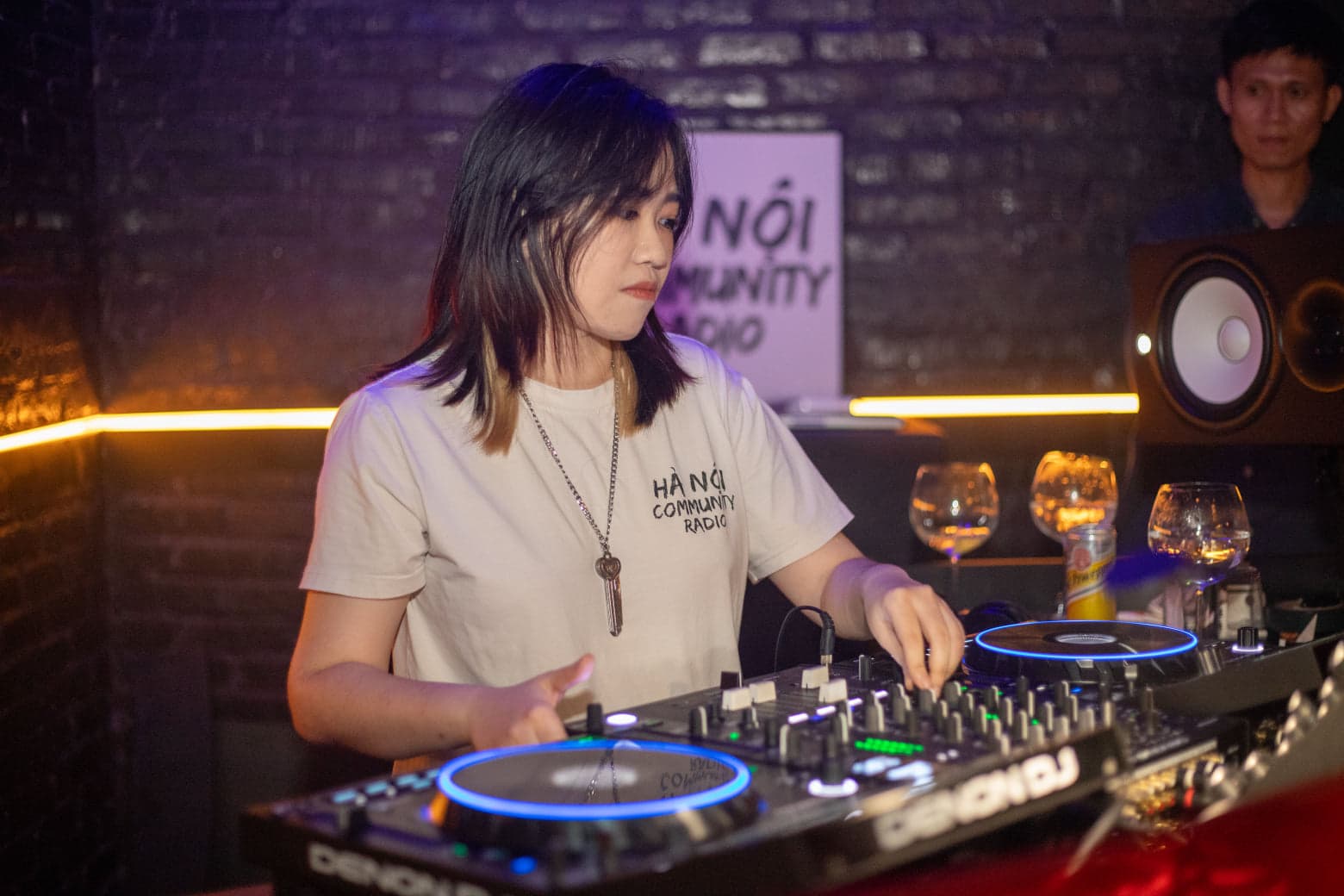
What role does radio in general play in the local Vietnamese community?
When I started HCR, I realized few people knew what community radio was. Doing radio or creating a podcast is a relatively new concept in Vietnam. So, there was little awareness of this being something people could actually do. The only type of radio they were in touch with was the mainstream media, which is controlled by the state. That kind of radio always comes with a certain point of view and not much freedom to express different ideas. It is played in public and people are used to it, so it can also provide a sense of consistency, I think. Sometimes it is just there.
What is the biggest difference between mainstream and community radios like HCR in Vietnam?
An online radio, you have to seek out intentionally if you want to listen to it. I guess the music can somewhat be the same. Mainstream stations are also playing Vietnamese pop artists or traditional songs. But the context of the radio is very different. In my opinion, mainstream radio is directed toward you and speaks to you through a set of structures and usually with an ulterior political motive. Community radio invites you in and fosters creative expression.
You mentioned that you have to be careful with political content. How do you go about that? What are the limitations?
In Vietnam, the government and politics are things you cannot just talk about. Being able to speak freely is a privilege many don’t have here. For that reason, Há Nội Community Radio is intentionally focused on creative expression. It is about giving people space to express themselves freely rather than being a space for political activism. Of course, the two are often connected. People find ways to still be political through artistic expression or by doing things in English and working internationally rather than locally.
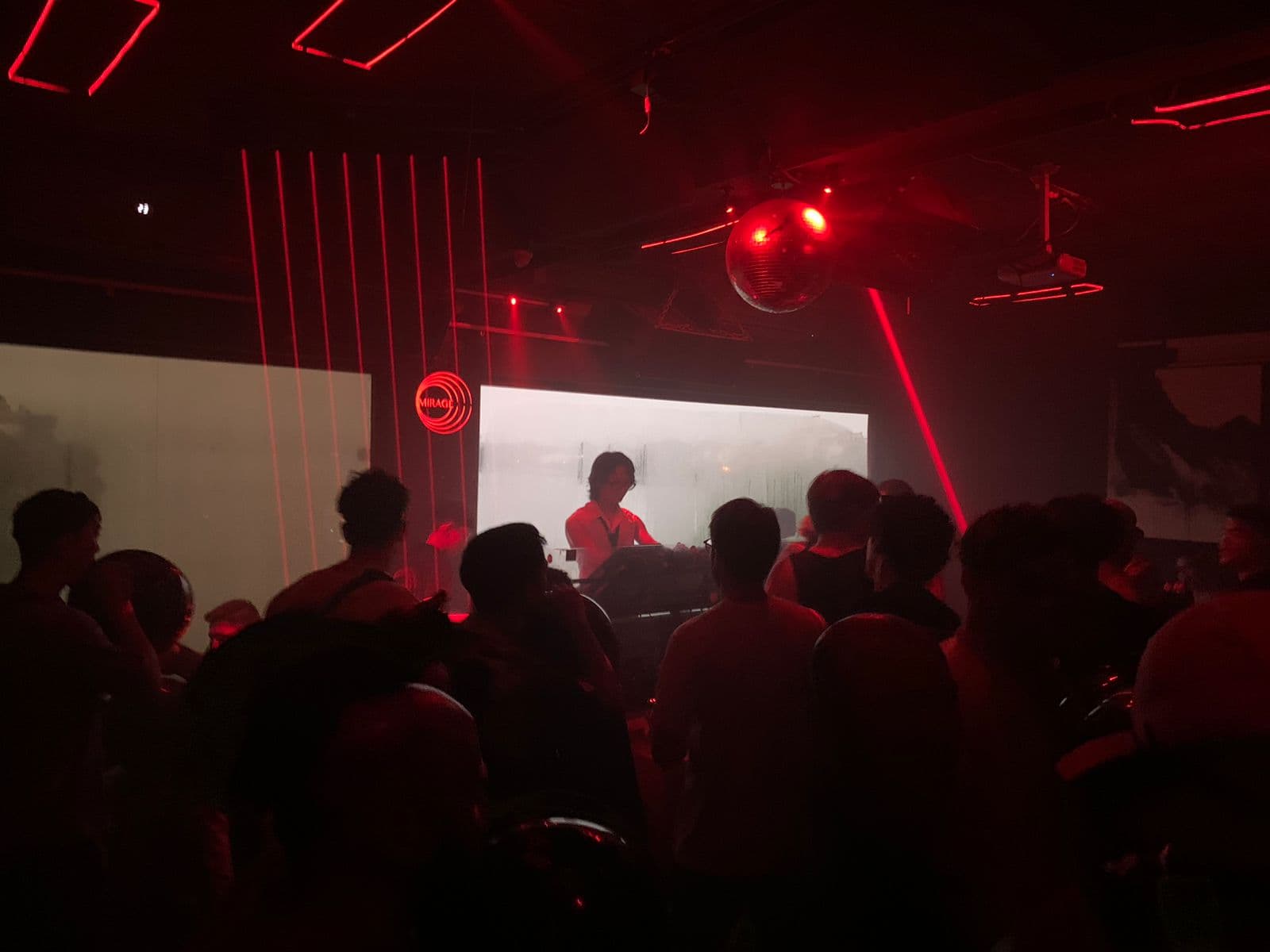
On the HCR Instagram page and in your shows, there are a lot of queer people featured. In terms of representation, is that something you're actively aiming for? Or did that just come about because the people reached out to HCR?
Both. We are very intentional about featuring queer voices, but it also comes naturally from the environment by which HCR is surrounded. I'm an Asian woman who runs a radio station. So, I feel like being in a minority is my everyday life anyway. I'm surrounded mainly by POC people and the queer community. That is reflected in HCR and our residents and shows as well.
Have you experienced backlash for highlighting queer voices?
Not really. I think Vietnam is actually quite open toward queer culture. It's just one of those countries where people don’t express their support openly, but I feel there is little negativity towards queer people or queer events on the local level. It's neutral.
Looking into the future, what hopes do you have for community radio in Vietnam in general?
I would like it to become a real possibility to join a creative community project like HCR and for younger Vietnamese people to actually have a future in jobs like this. Often, we are discouraged from engaging in projects that are not the serious jobs our parents were hoping for. Few people believe that you can make a living by DJing. Yes, it is difficult and that needs to change. But for that, the perspective on it needs to shift, too. Young people engaging in the arts and expressing themselves can only improve society.
What are your dreams for the station?
Honestly, my dream is to not run it myself at some point. I want the local young generation of Vietnamese people to take HCR over and use the platform how they see fit. I have been trying to separate my identity from this project because I don’t want it to be about me. I just want to teach a new generation what I learned and provide space where they can experiment and feel safe and connected. Ultimately, HCR is theirs.
Tune in and find out more about Há Nội Community Radio here.

We head to Wuppertal in February for a night at Open Ground.
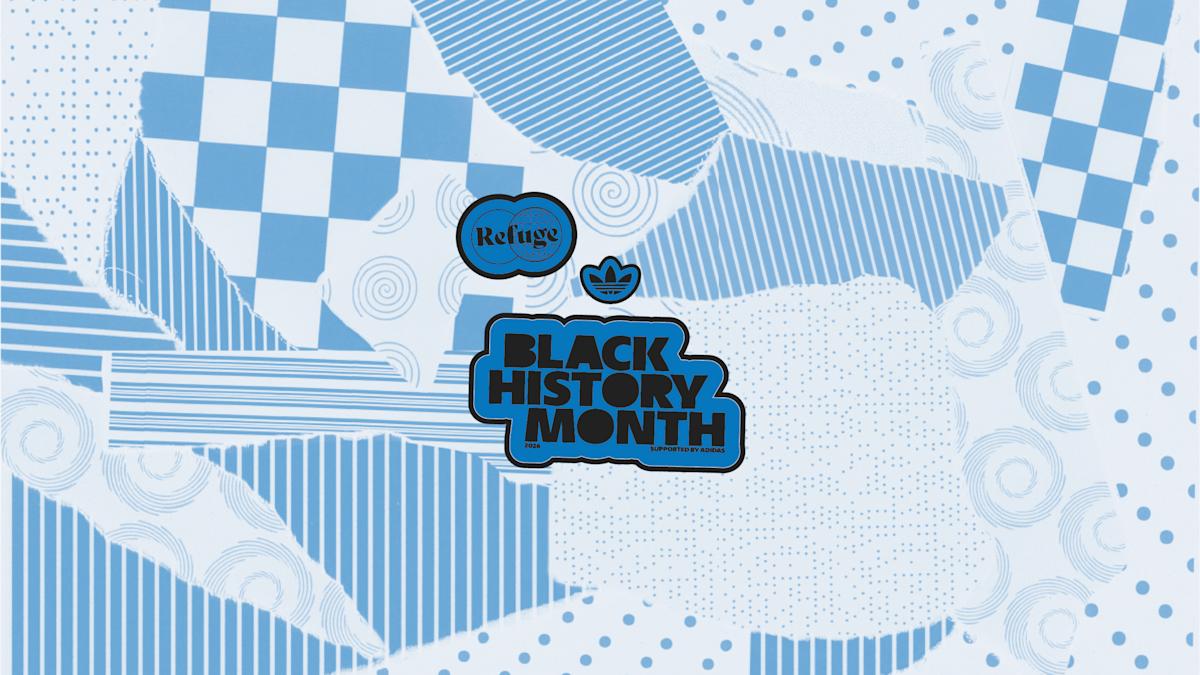
We are partnering with adidas on a 4-part series in February.

Join at Niemetzstrasse between 28th and 30th January.